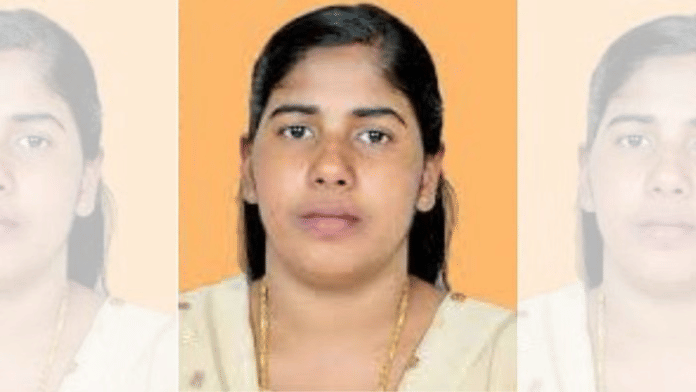Thiruvananthapuram: A day after making progress by securing a stay on the execution in Yemen, the fate of Kerala nurse Nimisha Priya continues to hang in the balance, as the victim’s family remains reluctant to grant a pardon.
Originally scheduled 16 July, Nimisha’s execution was stayed Tuesday following mediation efforts initiated by Kanthapuram A. P. Aboobacker Musliyar, the General Secretary of the All India Sunni Jamiyyathul Ulama and Chancellor of Jamia Markaz. The efforts were made through Yemeni Sufi Islamic scholar Sheikh Habib Umar bin Hafiz.
A native of Kerala’s Palakkad district, Nimisha was convicted by a Yemeni court in 2017 for the murder of Yemeni national Talal Abdo Mahdi, her business partner in setting up a clinic in Sana’a in 2015.
However, the mediation process hit a roadblock again Wednesday, after the victim’s brother expressed unwillingness to offer pardon. The discussion is continuing in Yemen on Thursday between the representatives of Sheikh Habib and the Mahdi’s family.
Abdelfattah Mahdi, the brother of Talal, said in a Facebook post that the discussions have not changed their stand on the matter.
“In any case, what comes after the execution date has been set is harder than what came before. We will follow through with the execution until it is carried out. No postponement will deter us, and no pressure will shake us. Blood cannot be bought… justice cannot be forgotten… and retribution will come, no matter how long the road, it’s only a matter of time, and we seek help from God,” he wrote Wednesday in Arabic.
According to Sharia law, a person convicted of murder in Yemen can be spared execution if all legal heirs of the victim agree to grant pardon, usually in exchange for ‘diya’ or blood money.
Advocate Subhash Chandran K.R., a member of the Save Nimisha Priya International Action Council, confirmed to ThePrint that the talks can proceed only if all family members agree to pardon Nimisha. He said discussions on blood money have not begun due to the family’s hesitation.
Talal, according to the petition filed by the Council in the Supreme Court, allegedly began embezzling funds and torturing Nimisha soon after the clinic was established. He also seized her documents. Acting on the advice of a warden at a local prison where Mahdi had previously been jailed, Nimisha reportedly attempted to sedate him to recover her documents. He died of an overdose in the process.
Nimisha had moved to Yemen in 2008 to work at a private hospital. Her husband and daughter returned to Kerala in 2014 due to financial constraints and visa issues that arose amid the ongoing civil war.
(Edited by Tony Rai)







She shouldn’t be granted any pardon….after dismembering body parts….